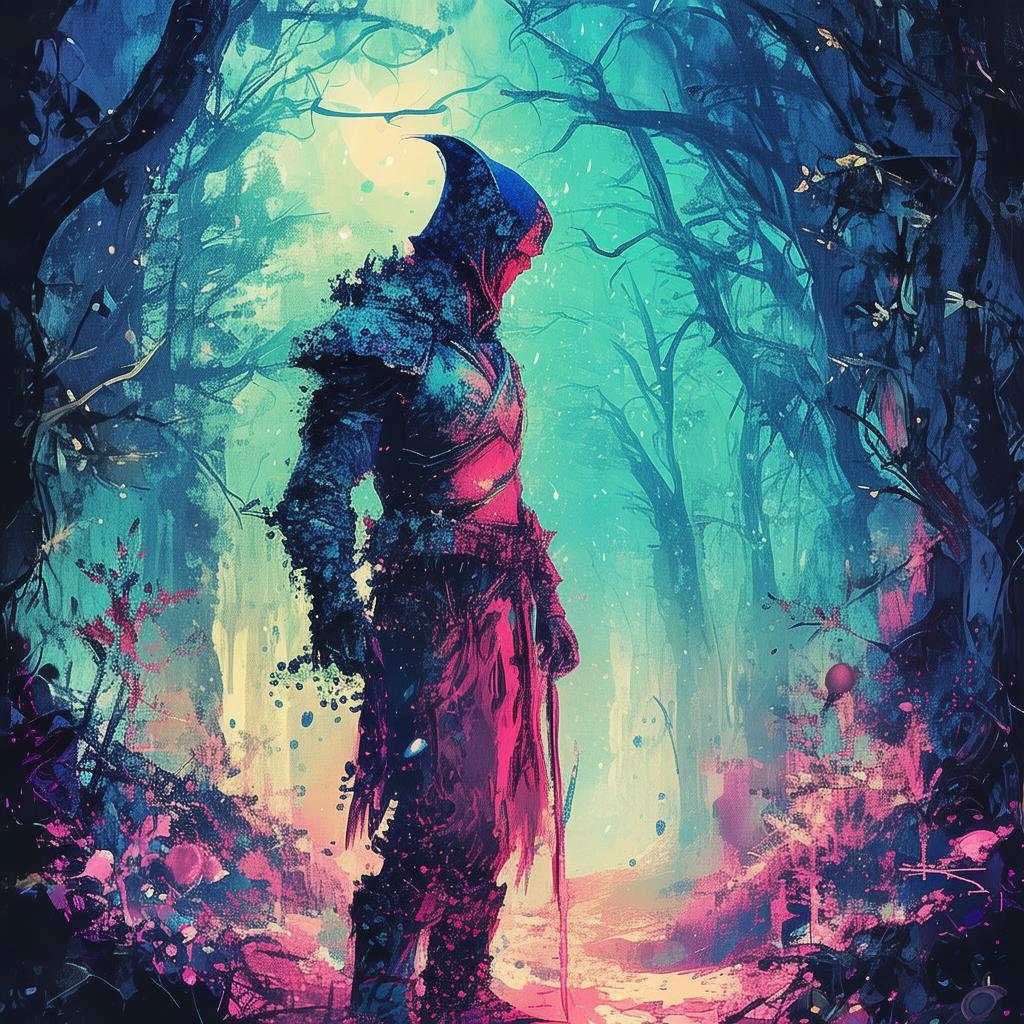The Last Ballad of Chronos
In the heart of the Mythic Court of Chronos, where the sands of time are as precious as the blood of the ancients, there lay a city that thrived on the dance of destiny. Here, the great chronarchs, the keepers of time, ruled with an iron hand, their judgments as swift as the passing of seasons.
Amara, a young bard with a voice that could summon the winds of spring or the chill of winter, had grown up in the shadows of the chronarchs' grandest hall. Her parents, both renowned minstrels, had fallen victim to the court's capricious whims, leaving her to eke out a living through the tales of old and the verses she wove from the hearts of the people.
The court was in the midst of a great celebration, a festival of the turning of the great wheel of time. The chronarchs had decreed that this year's festivities would be unlike any other, for it marked the centennial of a prophecy that had been whispered in the dark corners of the court for centuries.
Amara, with her keen ear for the pulse of the court, had overheard snippets of the prophecy. It spoke of a bard, born in the year of the dragon's flight, who would sing the final ballad of Chronos. This ballad, it was said, would reveal the greatest betrayal in the court's history, a betrayal that would shake the very foundations of time itself.

As the festival approached, Amara felt a strange pull, as if the threads of her destiny were being woven into the very fabric of the prophecy. She knew that to sing the ballad would be to risk her life, for the chronarchs had no love for those who dared to speak truths that could unravel their power.
One evening, as the moon hung like a silver coin in the sky, Amara found herself in the old library, a place filled with the echoes of countless stories. There, she discovered an ancient scroll, its pages yellowed with age but its words sharp as the edge of a blade.
The scroll spoke of a chronarch, once a guardian of the court, who had become corrupted by the pursuit of eternal life. This chronarch, known as Chronos the Unyielding, had used his power to manipulate time, ensnaring the very essence of the court in a web of deceit.
Amara's heart raced as she read the scroll. The prophecy had spoken of a betrayal, and now she knew who the betrayer was. But the scroll also spoke of a price—Amara must sing the ballad at the risk of her own life, for Chronos the Unyielding would not tolerate the truth being sung.
The festival arrived, and Amara stood before the crowd, her voice a melody that danced upon the air. She began to sing, her words weaving a tale of the chronarch's rise and fall, of the love that had turned to envy, and of the power that had corrupted the very heart of the Mythic Court.
The crowd was silent, held rapt by the tale. As Amara reached the climax of her ballad, she revealed the truth: Chronos the Unyielding had not only corrupted the court but had also taken a life, that of a young bard named Elara, who had dared to challenge him.
The crowd erupted in shock and fury. The chronarchs, who had stood in the shadows, now stepped forward, their faces twisted with rage. "You have spoken the words of heresy!" the highest chronarch bellowed. "You will pay for this!"
Amara, though terrified, stood her ground. "I speak the truth!" she shouted back. "The court must know the truth, or it will fall!"
But the chronarchs would not be swayed. They ordered Amara to be taken away, to be executed for her crimes. As she was led away, the crowd watched in silence, their hearts heavy with the weight of the truth.
As Amara was led through the grand hall, she looked back at the crowd, her eyes filled with sorrow. She knew that her ballad had been sung, but she also knew that it had not been enough. The chronarchs would not be so easily swayed from their path of corruption.
In the depths of the dungeon, Amara found herself alone, her voice now a whisper in the vastness of the cell. She knew that her days were numbered, but she also knew that the truth she had spoken would not die with her.
And so, as the last light of day faded into the night, Amara began to sing once more. Her voice echoed through the stone walls, a final ballad of Chronos, a song of truth that would live on long after she had passed from this world.
In the end, the truth had been sung, and though Amara's life had been taken, the myth of the last ballad of Chronos would be forever etched in the hearts of those who heard it. And though the chronarchs' rule would continue for a time, the shadow of the prophecy would always loom over them, a reminder that the truth, no matter how dark, would eventually shine through.
✨ Original Statement ✨
All articles published on this website (including but not limited to text, images, videos, and other content) are original or authorized for reposting and are protected by relevant laws. Without the explicit written permission of this website, no individual or organization may copy, modify, repost, or use the content for commercial purposes.
If you need to quote or cooperate, please contact this site for authorization. We reserve the right to pursue legal responsibility for any unauthorized use.
Hereby declared.









